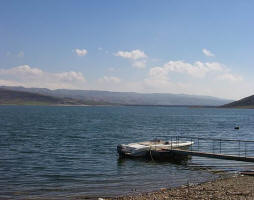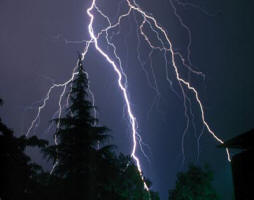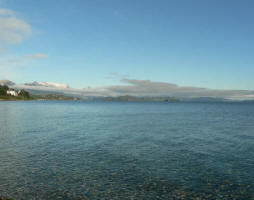 Water and energy in 2030
Water and energy in 2030
In its Report on Prospective World Energy in 2030, the International Energy Agency (IEA) created a scenario in which coal covered 45% of energy requirements and was responsible for 71% of CO2 emissions. The evolution of the current demand on energy and its sources offers this perspective, but an alternative scenario is possible with the development of clean energies and by containing the demand. The implications of energy production on water in the future are being analysed in the Thematic Week on “Water and Energy” in the Water Tribune.
The demand for energy will grow on a global scale by 50% to 2030, but it will grow more at a regional level. Pedro Linares (from the Institute of Technological Research and a member of CBG and FEDEA) estimates that between 2% and 47% of the total water consumption in the Middle East will go towards energy – double current figures – and the figures for Latin America will be between 4% and 26%. Linares acknowledged that these data offer only a preliminary analysis – all of the experts lament the few and limited figures available for water and energy as this means they can only perform general evaluations that identify potential problems. Where he feels these research studies should be focusing is on the water basins, differentiating between water use and consumption, the various productive activities, water availability and the demand trend.
Water consumption for industrial use will also have increased by 2030 and will be rivalling that of energy production. Pedro Linares’ study – based on the IEA Report – also offers us an alternative scenario for 20 years time. Renewable energies could have substituted a large proportion of the traditional energy sources. Ignasi Nieto (ex-secretary general for Energy) remembered that the Spanish Government had signed an agreement with the European Union so that, by 2020, 20% of the end energy product that is consumed in the country is renewable. He does not feel that the conventional forms of energy could disappear nor does he deny that renewables will not need water in his generation, but he feels that both should be combined under criteria of savings and efficiency. To explain the impact of the energy on the water available, Ignasi Nieto has designed 4 scenarios combining the growth in electric demand and effective consumption with the incorporation of renewables and water use. The land should be taken into account in matters of water and energy because it, too, is a scarce commodity.
Detailed studies of energy impact on water consumption were also presented in the Thematic Week. Gary Klein (from the California Energy Commission) linked water, energy and the greenhouse effect in the area of the State of California, where they are developing a plan to reduce emissions and improve water consumption efficiency. Then came Ricardo Corbacho (from Valencia Polytechnic University) who had studied the energy demand necessary for water supply in his city and who feels that distribution and water use can be made more efficient, but through acting in each phase in the cycle. In his opinion, energy efficiency is achieved through a reduction in water leaks and in consumption.| Contact information | n/a |
|---|---|
| News type | Inbrief |
| File link |
http://www.expozaragoza2008.es/Pressroom/News_Waterandenergyin2030/seccion=44&idioma=en_GB&id=200809120009&jarbues=6fce7a6f744bbf10f96729d9c2e1853d.do |
| Source of information | EXPO Zaragoza 2008 |
| Subject(s) | ENERGY , POLICY-WATER POLICY AND WATER MANAGEMENT |
| Geographical coverage | International |
| News date | 19/09/2008 |
| Working language(s) | ENGLISH |
 you are not logged in
you are not logged in





